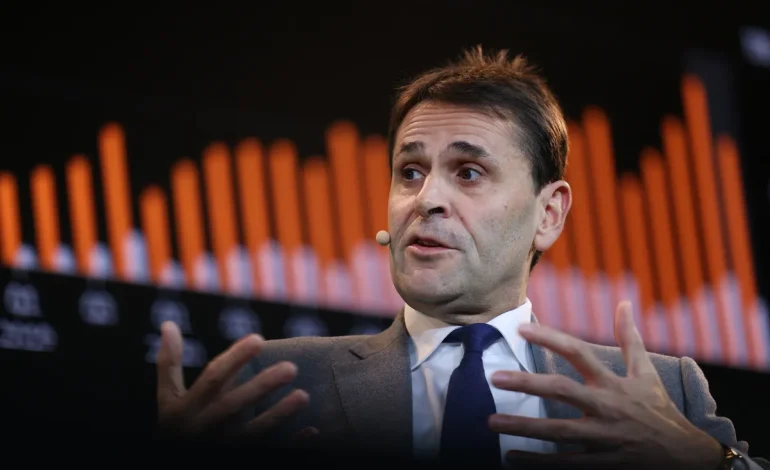ASML, the leading maker of semiconductor manufacturing equipment, expects 2026 to be a year of growth, despite current market challenges and ongoing geopolitical tensions.
CEO Christophe Fouquet shared this outlook at a Bloomberg technology conference in London on Tuesday, while also addressing the impact of US-China trade restrictions on the company’s future.
Fouquet’s comments come a week after ASML warned that 2025 could see slower growth due to weak electronics markets, aside from the strong demand for chips related to artificial intelligence (AI). ASML’s primary customer, Taiwan’s TSMC, which produces chips for Nvidia, is in the process of building several new factories, providing continued business for ASML. While the company still anticipates growth in 2025, it is expected to be at a reduced pace compared to previous years.
“We also expect 2026 to be a growth year, but it’s too early to quantify that with very high accuracy,” said Fouquet.
ASML’s stock rose by 1.8% to €668.60 in early trading.
ASML, headquartered in the Netherlands, faces increasing pressure from the US to limit its exports of advanced chipmaking technology to China, part of Washington’s broader effort to curtail China’s progress in the semiconductor sector. Fouquet noted that the US is likely to maintain this pressure, regardless of the outcome of the next presidential election.
“If you look at the geopolitical landscape, I think it’s clear that the US will continue to apply pressure for more restrictions,” Fouquet stated.
He also highlighted that while the US views the issue as one of national security, Europe is engaged in a debate over whether such restrictions are a matter of security or trade policy, and whether they are beneficial in the long term.
Although China has been a key market for ASML, particularly for mature semiconductor technologies that are not subject to US export controls, the company anticipates that its sales to China will decline. Fouquet expects China’s share of ASML’s revenue to drop from about 50% in recent quarters to around 20% next year, a level considered more typical for the company. This reduction comes as a backlog of orders from the COVID-19 pandemic has been fulfilled.
ASML holds a unique position in the global semiconductor industry, with a monopoly on producing advanced lithography machines required for manufacturing the most sophisticated chips, which power devices like Apple smartphones and Nvidia AI accelerators. China, however, has never been able to purchase ASML’s most cutting-edge extreme ultraviolet (EUV) machines, and the Dutch government has imposed further export restrictions on less advanced equipment as well.









